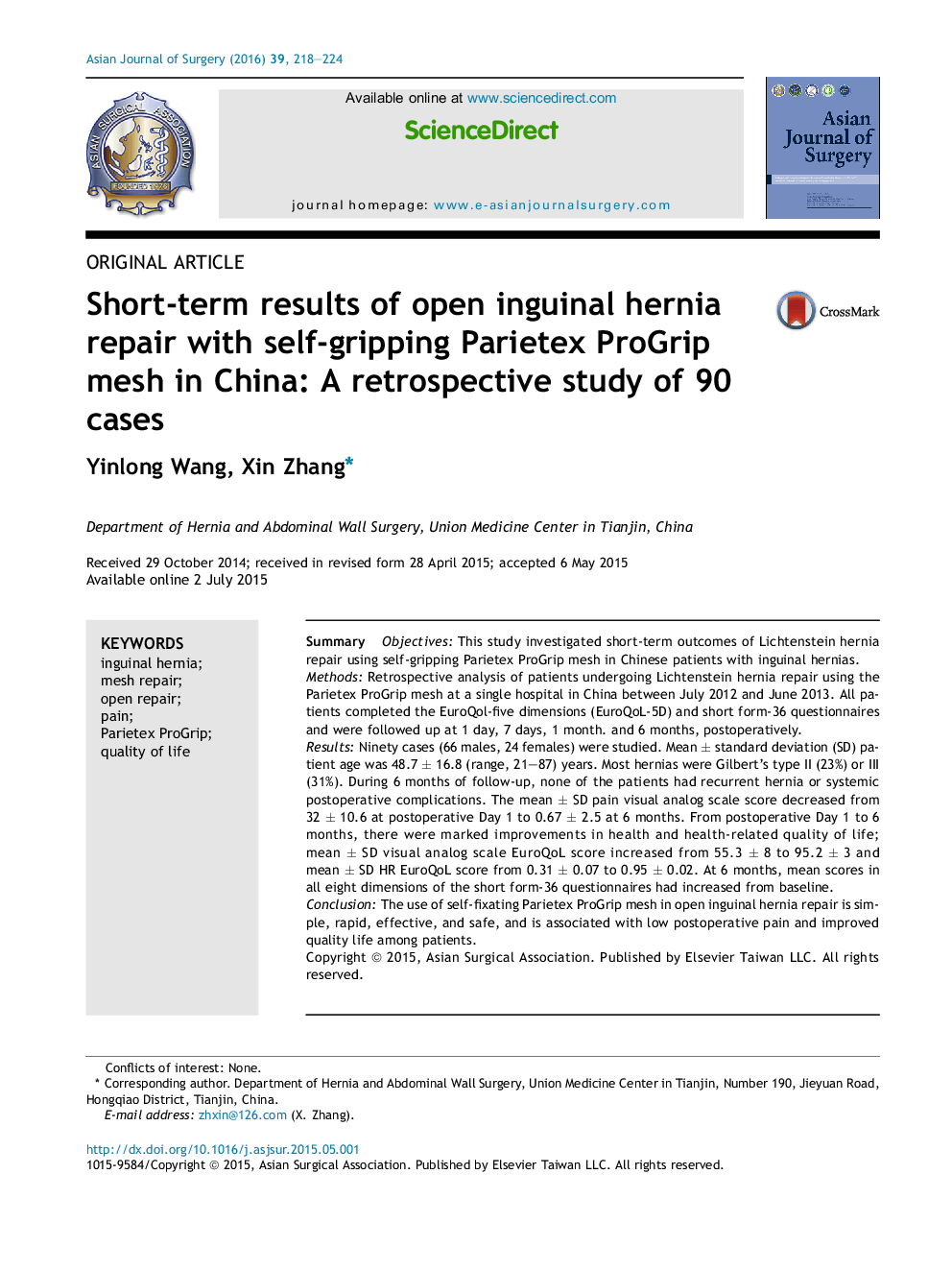| Article ID | Journal | Published Year | Pages | File Type |
|---|---|---|---|---|
| 4282530 | Asian Journal of Surgery | 2016 | 7 Pages |
SummaryObjectivesThis study investigated short-term outcomes of Lichtenstein hernia repair using self-gripping Parietex ProGrip mesh in Chinese patients with inguinal hernias.MethodsRetrospective analysis of patients undergoing Lichtenstein hernia repair using the Parietex ProGrip mesh at a single hospital in China between July 2012 and June 2013. All patients completed the EuroQol-five dimensions (EuroQoL-5D) and short form-36 questionnaires and were followed up at 1 day, 7 days, 1 month. and 6 months, postoperatively.ResultsNinety cases (66 males, 24 females) were studied. Mean ± standard deviation (SD) patient age was 48.7 ± 16.8 (range, 21–87) years. Most hernias were Gilbert's type II (23%) or III (31%). During 6 months of follow-up, none of the patients had recurrent hernia or systemic postoperative complications. The mean ± SD pain visual analog scale score decreased from 32 ± 10.6 at postoperative Day 1 to 0.67 ± 2.5 at 6 months. From postoperative Day 1 to 6 months, there were marked improvements in health and health-related quality of life; mean ± SD visual analog scale EuroQoL score increased from 55.3 ± 8 to 95.2 ± 3 and mean ± SD HR EuroQoL score from 0.31 ± 0.07 to 0.95 ± 0.02. At 6 months, mean scores in all eight dimensions of the short form-36 questionnaires had increased from baseline.ConclusionThe use of self-fixating Parietex ProGrip mesh in open inguinal hernia repair is simple, rapid, effective, and safe, and is associated with low postoperative pain and improved quality life among patients.
